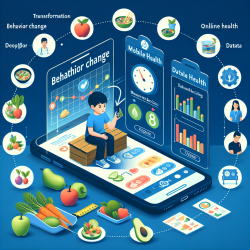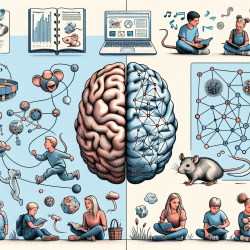Introduction
In today's digital age, mobile health (mHealth) applications offer innovative solutions for promoting healthy eating habits among children. A recent study titled The Content, Quality, and Behavior Change Techniques in Nutrition-Themed Mobile Apps for Children in Canada: App Review and Evaluation Study provides valuable insights into the content and quality of these apps. By examining the behavior change techniques (BCTs) employed, the study highlights the potential for mHealth interventions to improve child nutrition.
Key Findings
The study analyzed 259 nutrition-themed apps intended for children, categorizing them into food games, didactic nutrition guides, habit trackers, and others. Notably, 76.4% of these apps displayed foods and beverages not recommended by dietary guidelines. Food game apps were particularly prone to showcasing unhealthy food items, highlighting a critical area for improvement.
App Quality and Behavior Change Techniques
Overall, the quality of the apps was moderate, with a median Mobile App Rating Scale (MARS) score of 3.6. The study found that while nutrition guides were informative, they lacked engaging features, impacting their effectiveness in promoting healthy eating behaviors. The most common BCT identified was providing information about health consequences, a technique less effective for children compared to incentivization methods.
Implications for Practitioners
For practitioners in the field of child nutrition and online therapy, these findings underscore the importance of selecting high-quality apps that align with dietary guidelines. By leveraging apps that integrate effective BCTs and engaging features, practitioners can enhance the educational impact on children. Additionally, there's a need for further research to explore the long-term effects of app-based interventions on children's dietary habits.
Conclusion
This study serves as a call to action for app developers, health professionals, and educators to collaborate in creating evidence-based, engaging apps that promote healthy eating habits in children. By focusing on app quality and effective behavior change techniques, we can harness the potential of mHealth to improve child nutrition outcomes.
To read the original research paper, please follow this link: The Content, Quality, and Behavior Change Techniques in Nutrition-Themed Mobile Apps for Children in Canada: App Review and Evaluation Study.










